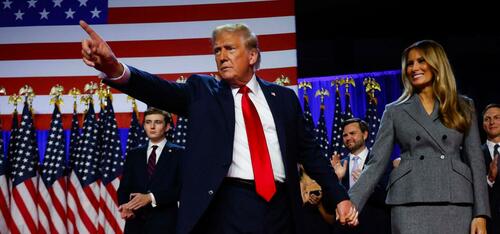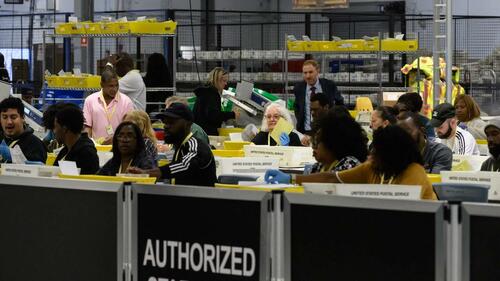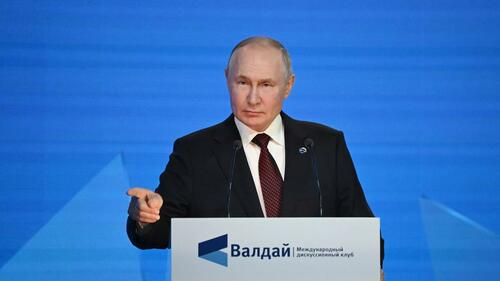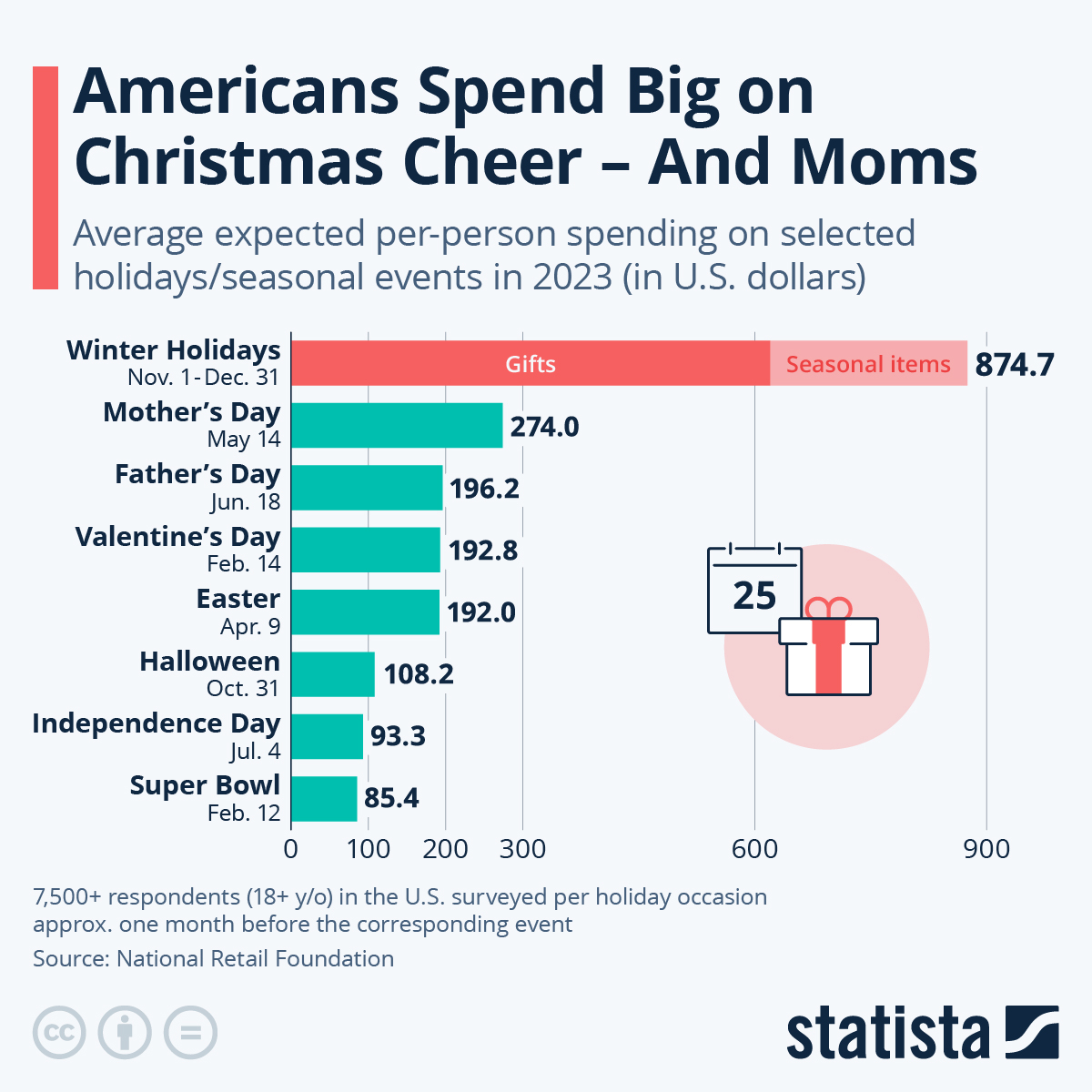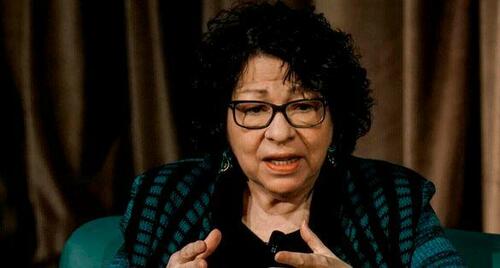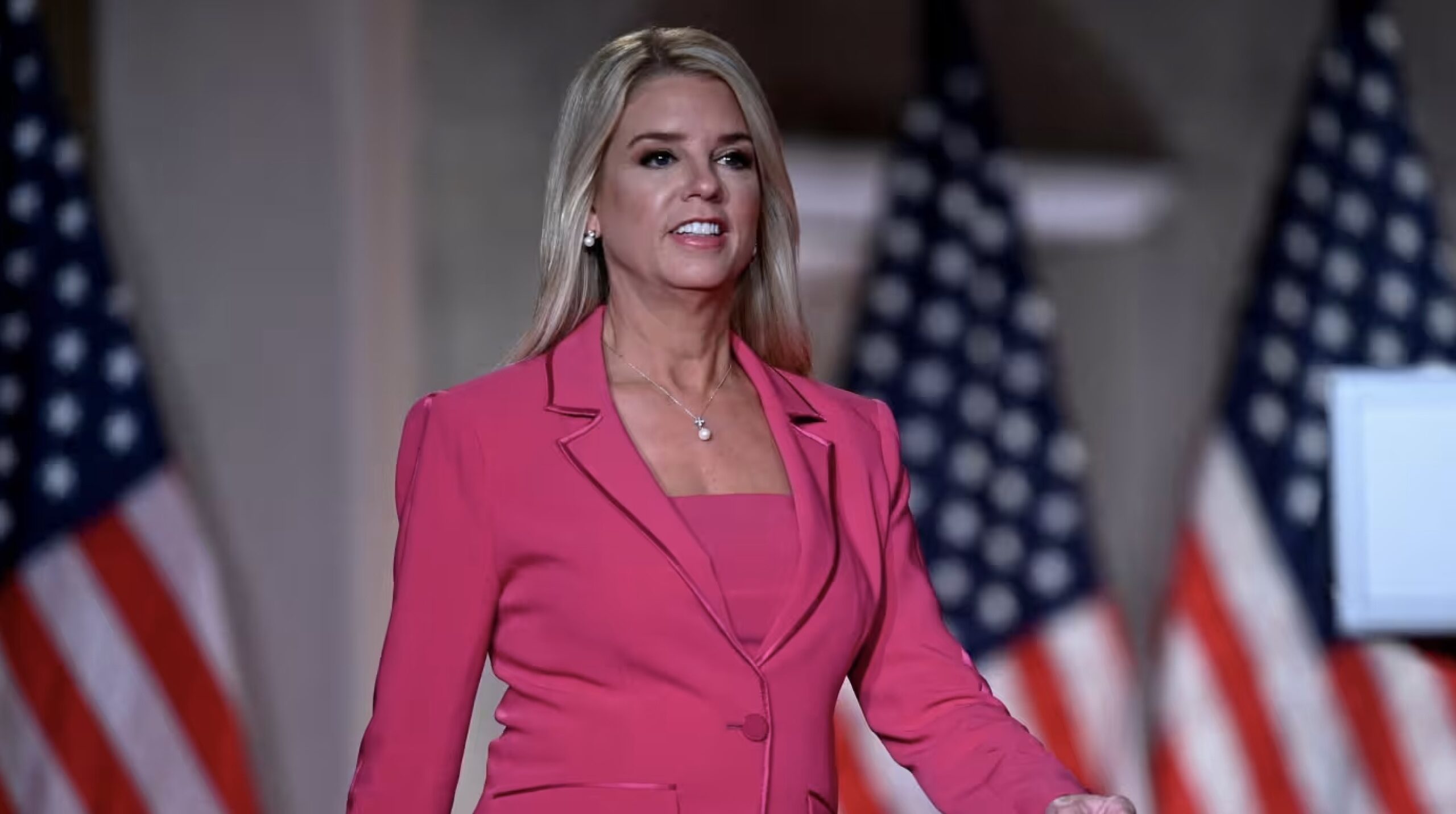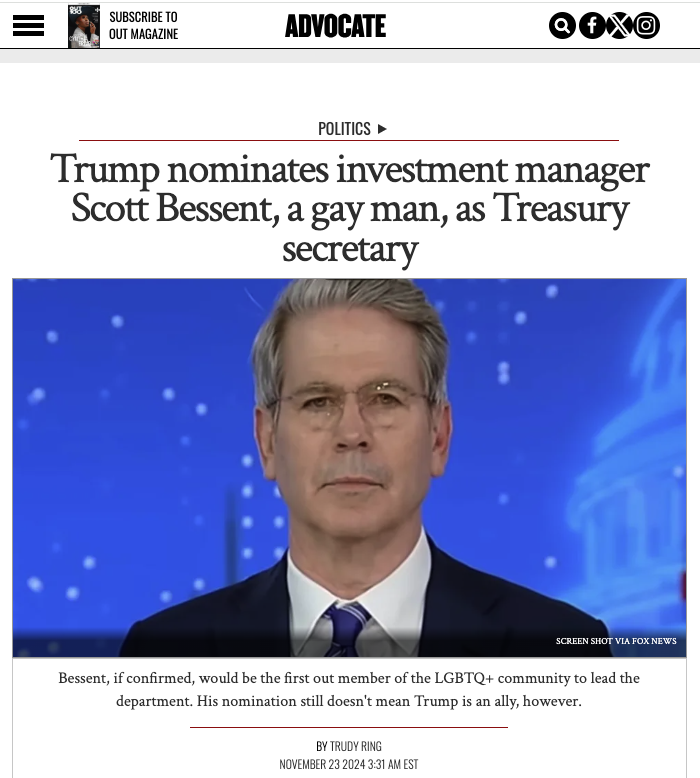Trump’s Victory Saved America
Trump’s Victory Saved America
Authored by James E. Fanell and Bradley A. Thayer via American Greatness,
President Donald Trump’s election victory on November 5 was an epochal event in American history. The American people gave Trump a mandate with almost 51% of the vote. He received over 73 million votes, more than four million more than his opponent. A new American coalition—traditional Republican voters united with lower middle class, working class, African Americans, Hispanics, and white women—provided the monumental victory. At such a significant time, it is important to consider how America arrived at such a historical moment and what must be accomplished in the years ahead.
Retrospectively, Americans must understand how they came to this place in their history. According to the exit polls, a whopping 72% of Americans understood that their country was on the wrong path. America’s political ideology, culture, and traditions were under assault by the so-called “progressive” wing of the Democrat Party. The Biden-Harris administration weakened the economy, caused inflation rates not seen since the 1970s, opened U.S. borders to some 15 million people and facilitated their relocation throughout the U.S. and so weaponized the legal system to wage lawfare against Trump, his major political and legal advisors, and against many of his supporters.
In the realm of foreign and defense policy, the debacle of the withdrawal from Afghanistan, the failure to deter the war in Ukraine, the horrific attacks against Israel on October 7, 2023, and the subsequent wars it unleashed. Significantly, the Biden-Harris regime failed to deter Communist China’s hyper-aggression directed against U.S. allies like the Philippines and partners like Taiwan, and most importantly against the American people through the deaths of a quarter of a million of our fellow citizens from Chinese-provided fentanyl and the intellectual capture of so many of the American elite who parrot the Chinese Communist Party’s (CCP) policy positions to advance the CCP’s interests.
The deeper cause of how America arrived at this point is the embrace of Marxism by the Democratic Party and thus its increasing totalitarianism and alienation from the American people. In its embrace of this ideology, the Democrat Party demonstrated that it had completely become detached from the American experience, ideology, history, and culture in its effort to transform America into a one-party state on the road to totalitarianism. The American people saw this effort to continue the “fundamental transformation” of America—as Obama identified it on the eve of the 2008 election—and rejected it.
Prospectively, there is so much that must be accomplished to repair the great costs that the Biden-Harris administration has inflicted upon the American people. As Trump has already stated in the immediate aftermath of his historic election victory, his first actions will be to “dismantle the Deep State and return power to the American People.” His stated goal is to return the government to the people, not the unelected bureaucrats that have installed themselves as a fourth branch of government. As such, the reform of government employment policies will be a major objective for his administration.
Likewise, a second Trump administration will address inflation, uncontrolled illegal immigration, economic stagnation, and the enormous national debt that risks destroying the Republic. The U.S. is in dire fiscal and economic circumstances and Trump will have to confront these issues immediately as they will be thrust upon him on January 20.
In foreign and defense policy, the situation is just as dire. U.S. conventional and nuclear forces must be strengthened. The defense industrial base must be restored to meet the threat from Communist China. The principal danger, the CCP, must be defeated by cutting it off from U.S. trade and investment—decoupling must be pursued with vigor. Furthermore, all Chinese entities should be prohibited from raising capital in U.S. markets. Its hyper-aggression must be checked by credible U.S. military power in conjunction with its allies and partners, like Japan, Korea, Australia, Thailand, India, and Taiwan.
Increasingly, Americans recognize that the CCP is illegitimate. It is the product of Soviet imperialism, and so is a colonial government ruling the Chinese people. Xi Jinping has no more legitimacy to rule the great Chinese people than we do. The second Trump administration will need to use the bully pulpit of our nation to inform the world of the CCP’s illegitimate control over the people of China.
Trump’s victory also provides the opportunity to save more than America. It provides the chance to defend Western civilization, upon which America’s foundation, history, politics, culture, and intellectual life are anchored. The Progressive Left’s (that is, Communists’) attack against America’s political ideology, history, and culture is part of a broader effort to destroy Western civilization. Initially, the left undermined it through the “ideas industry,” universities, K-12 education, think tanks, media, social media, television, and film. Then they labored hammer and tongs to overthrow it. Trump has the opportunity to repair the tremendous damage that the left has done carefully and deliberately to Western civilization. Working with European, British, Australian, New Zealand, and Canadian allies and other peoples around the world who value the contributions of Western civilization, Trump can begin to fix the damage.
Under Trump, the direction of the nation is clear—as it is for any ship embarking on a new journey. The ship of America must be sounded, the damage repaired, and a renewed course, like the ones originally charted by the celestial constellations that guided Washington, Jackson, Lincoln, Theodore Roosevelt, and Reagan, must be set. If we stay true to our constitutional principles, America will once again have a fair wind and a following sea as it returns to its political ideology, principles, and traditions. That course opens the door to the best years in America’s history.
The American people understood their plight and were searching for decades for an effective leader, only to be disappointed and frustrated with Republican Party candidates, which led to a profound alienation of the base from the Party establishment. Trump had brilliant careers in real estate and television before he entered politics. But he chose to throw his hat into the ring because he identified with what was happening to the American people.
In turn, the American people saw clearly that Trump was the vessel that would enact their course change. His tremendous courage, acumen, charisma, indefatigable physical stamina, thick skin, and political instincts are without parallel in modern American history. As such, the American people have unquestionably placed their trust in him to empower the saving of America. Trump has accepted that sacred challenge. He has excelled and will do so again in this colossal task because it is evident to Americans that he loves America, the American people, and is a fighter. The American people gave Trump his victory because they saw that Trump’s triumph is America’s.
Tyler Durden
Sun, 11/10/2024 – 23:20
Only 4 Amsterdam pogrom suspects still in custody after 63 detained
The assaults left five people hospitalized and approximately 30 others with minor injuries.
Was The 2024 Election Too Big To Rig?
Was The 2024 Election Too Big To Rig?
Authored by Edward Ring via American Greatness,
It’s Wednesday, the 6th of November, and America has chosen a new president. But we may not know the results for days or even weeks.
While there is a chance we will see a quick and decisive Trump victory, the media has prepared us for a protracted aftermath to election day. This raises an obvious question: Was there election rigging in 2024? Did the uniparty establishment and the institutions they control, desperate to prevent a Trump victory, break the rules? Did they cheat?
Answering this question in the affirmative doesn’t have to rely on the countless alarming allegations that are dismissed as unfounded conspiracy theories, even though there are so many of them:
The potential for mail-in ballot fraud, hundreds of ballots received at a single address, dozens of ballots received at a single address, questionable last-minute changes in verification procedures by the US Post Office, inaccurate voter rolls and fraudulent voter registrations, voter data leaks to partisan NGOs, vote harvesting, counterfeit ballots, destruction of legitimate ballots, ballot dumps, selectively applied “malfunctions” of voting machines in multiple states, last minute “patches” to fix voting machine software, illegal immigrants voting, and selectively applied closures of polling stations or inadequately staffed polling stations causing voter suppression.
You can claim there is no basis for concern over any one of those alleged cases of calculated, potentially widespread fraud. You can even dismiss the impact of fining and disbarring attorneys who challenged the integrity of the 2020 election and thus have deterred many attorneys from challenging this one.
The election was still rigged.
Anyone who watches David Muir at ABC, Lester Holt at CBS, Norah O’Donnell at NBC, or Amna Nawaz and Geoff Bennett at PBS will know this election was rigged, thanks to a multi-year propaganda campaign of shameless lying by the news anchors and reporters at the most prestigious networks in America. If you make it your business to keep track of what these “trusted news sources” are telling voters, it is obvious how hard they’ve tried to influence the election.
ABC News, for example, pretty much every single night for the last few months, has opened their newscast with 5-10 minutes where they heap slime all over Trump and praise Harris. If you watch the source material, for example, Harris’s CNN Town Hall, then watch the excerpts highlighted on ABC, you get two completely different impressions of her competence and integrity. Precisely the same tactic is used with Trump, but to the opposite effect. Watch one of his news conferences in its entirety, then watch what is grabbed, out of context, and presented on ABC.
Critics of Trump’s often brusque persona and often unvarnished condemnation of the media must ask, if they’re going to be fair, how would anyone react? For nearly ten years, David Muir has told us, with a straight face, that “the walls are closing in on Trump.” Along with fake scandals like the Russian collusion hoax, over and over we hear gross misrepresentations of things Trump has said. He mocked a disabled reporter; no, he didn’t. He told people to inject bleach to treat COVID; no, he didn’t. He called neo-Nazis “fine people;” no, he did not. And on and on it goes.
David Muir earned particular enmity among people who just wanted fair news coverage during the debate between Trump and Harris, when, for example, Muir insisted on “fact-checking” Trump but left Harris alone. For example, Muir contradicted Trump’s assertion that crime rates had risen, and Muir was wrong. The data, as Trump attempted to explain, was missing statistics from California’s major cities. Once that data was added, Trump’s claim was proven accurate.
Just in the last few days we’ve had the big four broadcast news anchors telling us that Trump wanted to put Liz Cheney in front of a firing squad, wants reporters covering his rallies to get shot, “groped” a woman back in the 1990s, expressed “deeply troubling” admiration for Adolf Hitler, held a “Nazi rally,” and intended to use the military against “the enemy within,” along with endless distorted repetition of everything bad they’ve ever said about him. All of this “news” was either truth twisted beyond recognition or outright lies. Meanwhile, their coverage of Harris has been indistinguishable from a paid Harris campaign ad.
There’s no end to the legacy television news media’s war on Trump. It’s not subtle, and despite their dinosaur status, they still exercise decisive influence over millions of voters. For the 2024 season-to-date, ABC Nightly News has averaged 7.7 million viewers, NBC averaged 6.4 million, and CBS averaged 4.7 million. PBS is now a big player as well, with a regular viewership of more than 5 million. That’s nearly 25 million regular viewers, with an average age of 65, nearly all of them high-propensity voters, and very few of them likely to be perusing alternative media. Cable news, for all the visibility and big audiences for the hosted talk shows on their networks, doesn’t compare. Recent estimates for primetime viewers of Fox News have averaged 359,000, versus 175,000 for CNN and 160,000 for MSNBC. Cable news audiences are dwarfed by the audiences for broadcast news content, which is overwhelmingly anti-Trump and pro-Harris. Tens of millions of Americans have been thoroughly brainwashed by these networks. But what about social media and online searches?
Back in 2015, Robert Epstein, a research psychologist with the American Institute for Behavioral Research and Technology, published “The search engine manipulation effect (SEME) and its possible impact on the outcomes of elections.” Continuing his research, in testimony before the U.S. Congress in 2019, Epstein claimed that biased search results on Google “impacted undecided voters in a way that gave at least 2.6 million votes to Hillary Clinton.” Epstein’s studies are compelling reading, and very little has changed. Google still controls 90 percent of the search engine market in the United States. In 2024, Google employee political donations favored Democrats by a ratio of more than 6 to 1. Draw your own conclusions.
As for social media, much is made of Twitter’s transformation into X, with no more censorship. Twitter, or X, has 95 million users in America. That’s a lot. But in the United States, Facebook has 194 million users, Instagram has 166 million users, TikTok reaches 170 million people, LinkedIn connects 200 million, and YouTube’s regular US viewers number 246 million. As a neutral platform, X’s audience reach is exceeded by more than 10 to 1 by the other major online platforms. With the lone exception of X, every one of these platforms employs biased algorithms designed to suppress conservative content. As for print media, intervention by the owners of the Los Angeles Times and the Washington Post to abstain from a presidential endorsement is too little, too late. Every newspaper and magazine with national reach, with the half-hearted exception perhaps of the Wall Street Journal, have been so anti-Trump and pro-Harris it is almost comical.
Social media, search engines, and legacy news media. In every facet of information gathering, the vast majority of Americans have been continuously exposed to anti-Trump, pro-Harris messages. None of this has been happening by accident. Michael Shellenberger, formerly a progressive liberal who was once honored as a Time Magazine “Environmental Hero,” has evolved into an investigative journalist of extraordinary integrity and courage. In recent years, his work has focused on what he has dubbed “the censorship industrial complex.” In a recent substack post, commenting on America’s news media from newspapers to television to online platforms, he had this to say, “It’s not a mirror of reality. It’s not just biased. And it’s not just deferential to the state or the party. It’s a propaganda arm dishonestly representing powerful political, ideological, and financial interests.”
Shellenberger, who alleges government manipulation of information sources available to Americans, is not alone. Mike Benz, a former US State Department official, claims that the U.S. government has become increasingly concerned about the rise of populist movements in the U.S. and around the world and is actively interfering in media freedom. Another window into how this is working is documented by Ben Shapiro in a must-watch video, where he describes the network of state-supported NGOs and quasi-private sector agencies that influence who gets advertising dollars and who gets boycotted, in an ostensibly benign effort to “create a universal framework full of guidelines and ratings designed to enforce approved narratives.”
It ought to be obvious to anyone who finds both sides of the story by using alternative media that in a fair election, America’s print, video, and online media, and search engine results, could have easily delivered just as much negative coverage about Harris as they have inflicted on Trump, and they could have delivered just as much positive coverage about Trump as they’ve lavished on Harris. Maybe the only rules that were broken were supposed norms of journalistic integrity. But by an order of magnitude, America’s sources of “news” and information were massively tilted in favor of Harris and against Trump.
If for no other reason but media bias, this election was rigged. As a result, regardless of the outcome, half of all Americans have lost faith in fair elections. Even if every allegation of actual, fraudulent, widespread rigging is false, nobody who thinks so will change their minds. For them, the media sources that might help debunk any of it have no credibility. That is a crime perpetrated by the elite who control these institutions that transcends even this moment.
Tyler Durden
Sun, 11/10/2024 – 17:30
Escobar: Putin Outlines The ‘Moment Of Truth’
Escobar: Putin Outlines The ‘Moment Of Truth’
Authored by Pepe Escobar,
President Putin’s plenary session performance (address + Q&A) at the annual Valdai Club meeting in Sochi felt like a high-speed train on cruise control.
Totally cool, calm, comfortable, in full command of a Himalaya of facts, no political leader anywhere – recent past and present – would even come close to delivering what amounts to an extensive, detailed world view deeply matured over a quarter of a century at the highest geopolitical level.
Putin began his address referring to the October 1917 revolution, drawing a direct parallel with our turbulent times: “The moment of truth is coming”. In a clear tribute to Gramsci, he stated how a “completely new world order” is “being formed before our eyes.”
The subtle reference to the recent BRICS summit in Kazan could not possibly escape critical minds across the Global Majority. Kazan was a living, breathing testimony that “the old order is irrevocably disappearing, one might say, has already disappeared, and a serious, irreconcilable struggle is unfolding for the formation of a new one. Irreconcilable, first of all, because this is not even a fight for power or geopolitical influence, this is a clash of the very principles on which relations between countries and peoples will be built at the next historical stage.”
As concisely as possible, that should be taken as the current Big Picture framework: we are not mired inside a reductionist clash of civilizations or the “end of History” – which Putin defined as “myopic” – but facing a make-or-break systemic clash of fundamental principles. The result will define this century – arguably the Eurasia Century, as “the dialectics of History continues.”
Putin himself quipped that he would drive into “philosophical asides” during his address. In fact that went much further than a mere refutation of unilateral conceptual fallacies, as “the Western elites thought that their monopoly is the final stop for humanity” and “modern neoliberalism degenerated into a totalitarian ideology.”
Referring to AI, he asked rhetorically, “will human remain human?” He praised the building of a new global architecture, moving towards a “polyphonic” and “polycentric” world where “maximum representation” is paramount and the BRICS are “coming up with a coordinated approach” based on “sovereign equality.”
Six Principles For Global Sustainable Development
Sovereignty had to be one of the predominant themes during the Valdai Q&A. Putin was adamant that Russia must “develop our own sovereign AI. As algorithms are biased and give massive power to a few big companies that control the internet, the need is imperative for “sovereign algorithms.”
Answering a question on Eurasian security and the US as the dominant maritime power v. a multipolar Eurasia, he stressed the “consensus and desire in Eurasia for an anti-hegemonic movement”, and not for Eurasia constituted “as a bloc”. That’s the appeal of Eurasia’s “multi-vector foreign policy”, implying “more political independence”. The key example of “harmonizing interests”, Putin stressed, is the Russia-China partnership, and that was also what “made BRICS successful.”
Compare it in contrast to “the inability in Europe to establish a system of “indivisibility of security” and to “overcome bloc politics”; Europe instead went for NATO expansion: “After the end of the Cold War there was an opportunity to overcome bloc politics. But the US had fear of losing Europe. The US installed almost a colonial dependence. Honestly I did not expect that.”
Putin introduced a fascinating personal experience tidbit referring to a conversation – in German – with former German chancellor Helmut Kohl in 1993, when Kohl said flat out that “the future of Europe” is linked to Russia.
Yet that ended up leading to “the most important problem on our Eurasian continent, the main problem between Russia and European countries: the trust deficit (…) When they tell us that ‘we signed the Minsk agreements on Ukraine only to give Ukraine an opportunity to rearm, and we had no intention of resolving this conflict peacefully,’ what kind of trust can we talk about? (…) You have directly publicly stated that you have cheated us! Lied to us and deceived us! What kind of trust is that? But we need to get back to that system of mutual trust.”
Putin then added that Europe should consider becoming part and parcel of a Chinese concept straight from Chinese philosophy (“they do not strive for domination”). With panache, he stressed that the Chinese uber-geoeconomic trade/connectivity project should be interpreted as One Belt, One Common Road.
And that extrapolates to Central Asia, with all those nations “very young in their statehood” interested in “stable development”. For Russia-China, there’s “no competition” in the Heartland: “we only have cooperation.”
Putin once again enumerated what he considers the 6 key principles for global sustainable development: openness of interaction (implying no “artificial barriers”); diversity (“a model of one country or a relatively small part of humanity should not be imposed as something universal”); maximum representativeness; security for all without exception; justice for all (erasing “the gap between the ‘golden billion’ and the rest of humanity); and equality.
“Make Civilizations, Not War”
On Ukraine, this was the money quote: “If there is no neutrality, then it’s difficult to imagine any kind of good neighborly relations between Russia and Ukraine.” In a nutshell: Moscow is ready for negotiations, but based on facts on the battlefield and what was agreed upon in Istanbul in April 2022.
That may be interpreted as a direct message to President Trump. To whom the door is open: “Russia has not damaged its relations with the US and is open to their restoration, but the ball is in the Americans’ court.”
Putin on US Presidents (he met quite a few): “All of them are interesting people.” On Trump: “His behavior when there was an attempt on his life, I was impressed. He is a courageous person. He acquitted himself valiantly.” On the open door: “Whatever he does it’s up to him to decide.” Then Putin offered his own congratulations for the re-election – on the record. The dialogue may be on: “We are willing to talk to Trump.”
Putin extolled Russia-China relations as part of their strategic partnership as being “at the highest level in modern history.” He also praised his own personal relation with Xi Jinping. That paved the way for the real killer, when it comes to US-Russia-China: “If the US had chosen a trilateral cooperation instead of double constraint – everyone would win.”
An excellent question by Brazilian economist Paulo Nogueira Batista Jr – a former vice-president of the NDB, the BRICS bank – led Putin to clarify his own position on de-dollarization. He stated flatly that “my role is to see ideas shaped that we then propose to our partners”.
The key target is “proposing to create a new investment platform using electronic payments.” That will address the “most promising markets” in the near future – South Asia, Africa, parts of Latin America: “They will need investment, technologies.” And “tools independent from inflation” – with regulation “through Central Banks and the NDB. We agreed to have a working group meeting regularly at government level. We are in no hurry.”
So that puts to rest any scenario of an immediate BRICS financial bombshell – even as “two-thirds of our trade is being serviced in national currencies” and among BRICS the figures are also high.
BRICS Bridge will be tested – soon. As for creating a single currency, that’s “premature. We need to achieve greater integration of economies, increase the quality of economies to a certain – compatible – level.”
Then, the bombshell: “We never wanted to abandon the dollar!” That goes a long way to explain Putin’s own view on de-dollarization: “They are undoing it with their own hand – the power of the dollar.”
All of the above is just a sample of the width and breath of themes addressed by the President during the Valdai Q&A. The forum itself offered precious nuggets all across the spectrum. Some participants – correctly – noted the absence of “the majority of the majority”: youth and women. Africans were impressed with “the sharp mind of Russian bureaucracy.”
A Chinese view noted how “the Chinese don’t swim against the current; they cross the river and reach the other bank.” There was a near consensus that development should be “based in different cultural values of civilizations” – actually Putin’s own view. Also imperative is the “need for aggregate authority” among the Global South.
A Greek insight was particularly powerful when it comes to the civilizational approach to politics: “Civilizations don’t clash. States do.” Thus the new – playful – motto that could guide not only BRICS but the whole Global Majority: “Make Civilizations, Not War.”
Tyler Durden
Sat, 11/09/2024 – 23:20
Americans Spend Big On Christmas Cheer… And Mums
Americans Spend Big On Christmas Cheer… And Mums
With an expected per-person spending of $875, no other holiday rooted in long-standing tradition comes close to the winter holiday season, which starts on November 1 and ends on December 31.
You will find more infographics at Statista
As Statista’s Florian Zandt reports, data from the National Retail Federation (NRF) shows that spending for the runner-up, Mother’s Day, only amounts to one third of Thanksgiving and Christmas consumer spending, with no other seasonal event coming close.
While Mother’s Day spending stood at $274 per person in 2023, Father’s Day, Valentine’s Day and Easter ranged between $192 and $196 in the past year.
Halloween, where money is mostly spent on costumes and decorations according to additional data from the NRF, comes in sixth with an expected per-person spend of $108. While most of the holidays featured on the list have roots in history reaching back hundreds to thousands of years, the Super Bowl is a relatively new phenomenon. This fact notwithstanding, U.S. Americans on average still spend $85 per person on arguably the most important U.S. sports event of the year.
When taking into account not just festivities connected to specific celebrations, two other occasions take the first and second spots in the ranking: Back-to-college and back-to-school. However, these two events are not comparable to the rest of the list, since the average expected spending of $1,367 and $890, respectively, is calculated by household and not per person. Having more than one individual per household in need of school supplies, clothing or electronics for the new school year can skew the results. Therefore, it’s likely that even while the per-household figures for back-to-college and back-to-school are higher, the winter holiday season still ranks first in individual spending.
Tyler Durden
Sat, 11/09/2024 – 22:45
Dems Float Plan To Push Ailing Justice Sotomayor Off Supreme Court So Biden Can Replace Her Before Trump Is Sworn In
Dems Float Plan To Push Ailing Justice Sotomayor Off Supreme Court So Biden Can Replace Her Before Trump Is Sworn In
Authored by Debra Heine via American Greatness,
Democrats are reportedly having serious discussions about mounting a pressure campaign to force ailing Supreme Court Justice Sonia Sotomayor to resign so Joe Biden can nominate a replacement before President-Elect Donald Trump is sworn in.
After losing their Senate majority to the GOP, Democrats are concerned that Republicans will be “revving up the old conveyor belt of conservative judicial nominees” as soon President-Elect Trump takes office, Politico reported.
For Democrats, this is a hair-on-fire moment. And though the discourse in the media is presently dominated by recriminations about how this all happened, another arguably more urgent conversation is blowing up largely outside of public view: whether to push for 70-year-old Supreme Court Justice SONIA SOTOMAYOR to step down while Dems still have the power to approve her replacement.
This isn’t simply some flight of fancy happening among progressive activists online. It’s a conversation members of the Senate are actively engaged in.
A Democrat senator told Politico that the topic of pushing Sotomayor off the Supreme Court “has come up repeatedly this week in talks with their colleagues.”
These “Beltway speculative conversations,” according to Politico, have inevitably hit roadblocks for two reasons:
(1) It’d be a risky play with the party already trying to figure out how to handle a crowded lame-duck session
(2) no senator seems to be offering to be the person to put his or her neck on their line publicly (or even privately) by pushing for Sotomayor to step aside.
When Democrats first floated the idea of jettisoning Sotomayor last year, they were accused of ableism and racism.
The names of possible replacements have been discussed, including the allegedly “moderate” D.C. Circuit Judge J. Michelle Childs, who was reportedly on Joe Biden’s SCOTUS short list, and has already been vetted.
Another name floated on Friday was none other than Kamala Harris.
On CNN this morning, attorney Bakari Sellers, a Democrat former member of the South Carolina House of Representatives, suggested that Biden could nominate Harris, giving her a new purpose in life after being vanquished by Trump.
Just as Democrat elders forced Biden to quit his campaign after his disastrous debate with Trump, the party could pressure Sotomayor to step down. Harris, of course, quickly replaced Biden as the presidential candidate and could potentially replace Sotomayor on the Supreme Court if Democrats succeed in their pressure campaign.
Sellers suggested the operation could be pushed through before Trump takes the presidency.
“I think that’s actually a very good plan. I think it’s something that should happen,” he said. “You know, Justice Sotomayor has been a more than able justice. I know that she may be having some personal issues that she contends with while serving on the bench. But, you know, I don’t want Justice Sotomayor to be another Ruth Bader Ginsburg in terms of staying too long.”
The plan is not without certain risks for Democrats.
If Sotomayor agreed to resign, “she can sort of resign conditionally on someone being appointed to replace her,” the Democrat senator told Playbook. “But she can’t resign conditioned on a specific person. What happens if she resigns and the nominee to replace her isn’t confirmed and the next president fills the vacancy?”
Then there’s the abbreviated timeline. Democrats would have to convince her to retire immediately, Biden would have to nominate a successor, they would have to figure out how to bring enough senators on board, dodge whatever obstructions Republicans throw in their way and get a whole floor vote before the new Congress is sworn in. There would be no room for error or delay.
“We would have to have assurances from any shaky senator that they would back a nominee in the lame duck, because what do you do if she announces she’s going to step down and then independent West Virginia Sen. Joe Manchin doesn’t support her and then [Republican Sens.] Susan Collins and Lisa Murkowski back off and say they’re not going to support a new nominee?” a senior Democrat told Politico. “Do you just rescind that letter?”
The senator told Politico that the logistics of the operation may well be “insurmountable,” and it might “be better to focus on confirming lower-court judges, filling vacancies Trump can’t later fill himself.”
Sen. Josh Hawley commented on the record Friday: “This is not happening. No way, no how,” he posted on X . “The Senate will not confirm any last-minute Dem Supreme Court nominee between now and January. The next SCOTUS justice will be nominated by Donald J. Trump.”
Tyler Durden
Sat, 11/09/2024 – 16:20
Notre Dame’s bells ring out as Cathedral to reopen for Feast of the Immaculate Conception for first time since 2019
“Today, its bells are finally ringing thanks to the extraordinary work of so many of you. In a month, we will reopen its doors.”
At least 25 dead, dozens injured in Pakistan train station suicide blast
The Baloch Liberation Army (BLA) has taken responsibility for the attack.
PAIGE ROUX: Colorado’s under-21 gun sales ban to take effect after federal appeals court ruling
The legislation raised the minimum age for purchasing a firearm in Colorado from 18 to 21.
FRONTLINES: AZ voters make it legal to arrest illegal immigrants for crossing border into state
Proposition 314 also introduces penalties for other offenses.

